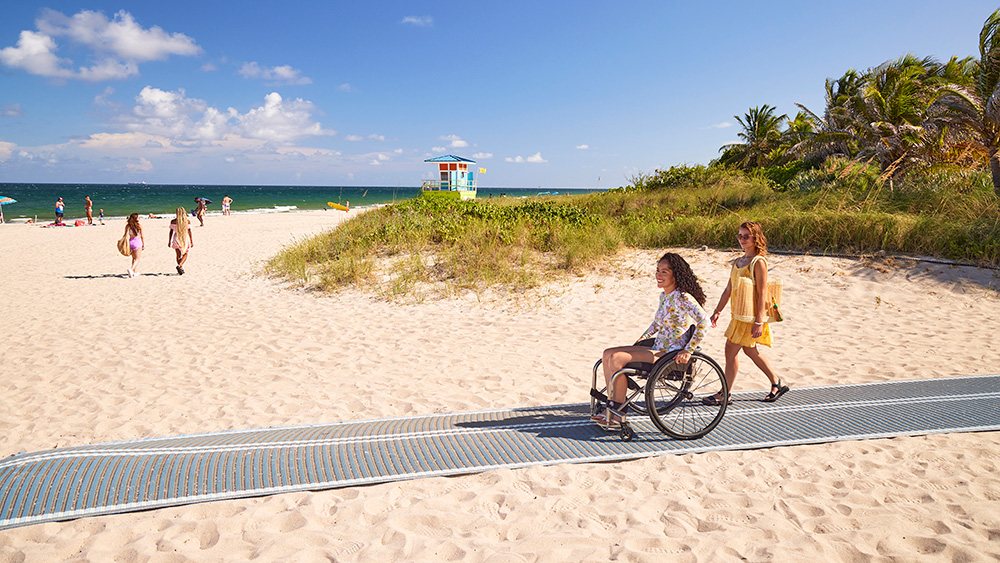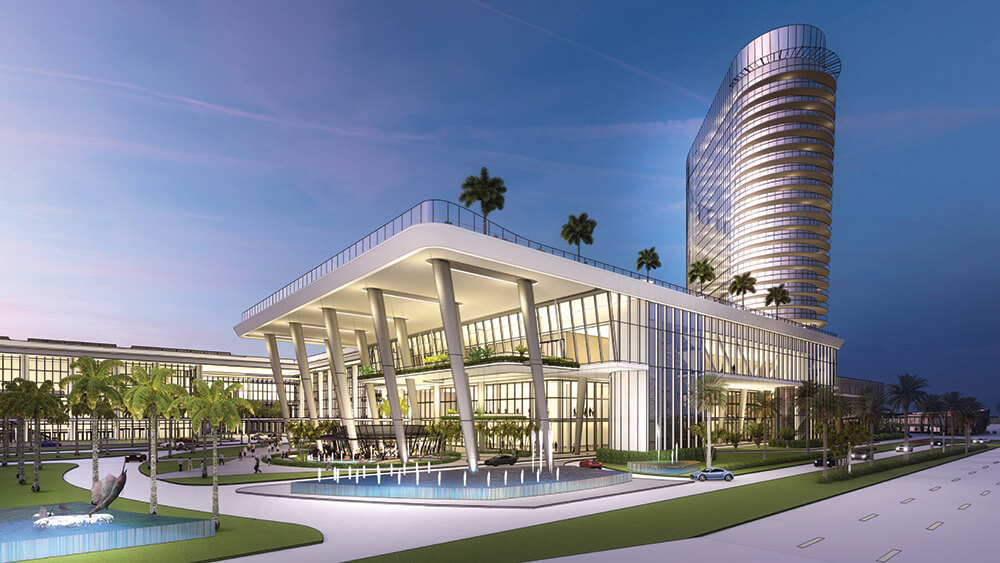
“By removing accessibility barriers, we’re able to provide a quality experience for all, including people with visible and invisible disabilities,” said Richard Gray, Visit Lauderdale’s senior vice president of inclusion and accessibility.
When attendees land at Fort Lauderdale-Hollywood International Airport, the first thing they may notice is the work: Crews are breaking ground on a Terminal 5 expansion project this month that will make getting to South Florida even easier. The next highlight, though, isn’t the promise of more airlift. Instead, it’s the way the airport is equipped to assist individuals with learning difficulties, mental health challenges, mobility, speech, and/or visual or hearing — without them having to ask for it, via the Hidden Disabilities Sunflower program. The Hidden Disabilities Sunflower is a simple tool for individuals to voluntarily share that they have a disability or condition that may not be immediately transparent — they can opt to wear the sunflower to discreetly be recognized throughout the airport for a more inclusive experience.
It’s a reflection of what Visit Lauderdale Senior Vice President of Inclusion & Accessibility Richard Gray calls a “commitment to provide everyone with a safe and supportive environment.”
“By removing accessibility barriers,” Gray said, “we’re able to provide a quality experience for all, including people with visible and invisible disabilities.”
In the U.S. alone, there are 61 million individuals with visible or invisible disabilities according to the CDC, and Visit Lauderdale is leading the way by showing how to best welcome all eventgoers who may fall into that category. It’s why the city is a natural fit for groups like the Deaf Seniors of America Conference, which welcomed more than 1,000 deaf attendees to the Seminole Hard Rock Hotel & Casino Hollywood earlier this year, and the Abilities Expo — a free- to-the-public, three-day event with the latest products, technology, informative workshops, and adaptive activities — which convened at the Greater Fort Lauderdale/Broward County Convention Center in mid-October and offered a wide range of services such as sign language interpretation, captioning services, and complimentary wheelchair repair.
And as more business event organizers recognize the importance of meeting the needs of autistic audiences, Greater Fort Lauderdale’s venues offer inspiration. Consider the Broward Center for the Performing Arts, which has a full calendar of sensory-inclusive programming and the monthly sensory-inclusive movies at the Museum of Discovery and Science’s AutoNation IMAX Theater.

The highly anticipated, Omni-branded headquarter hotel will open next to the Greater Fort Lauderdale/Broward County Convention Center in 2025.
A ‘20-Minute’ Town
As business events welcome attendees with a wide range of abilities, needs, and behaviors, they all seek to provide ways for everyone to get around easily. Greater Fort Lauderdale offers the kind of accessibility that makes everyone happy — getting anywhere isn’t going to take more than 20 minutes. The convention center to the airport: just five miles. The new Omni headquarter hotel (opening adjacent to the convention center in 2025) to the promenade along Fort Lauderdale Beach: 1.5 miles. The marina at the Hilton Fort Lauderdale to the hub of downtown nightlife: 2.5 miles. No matter where attendees want to explore when the day’s event program is done, they’ll be able to get there without delay.
To learn more about inclusion and accessibility in Greater Fort Lauderdale, get information at Visit Lauderdale.

